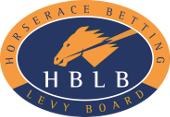Tuesday 30th October 2012
Levy Board Awards £1.6m for Racehorse Health in 2013
The Horserace Betting Levy Board (HBLB) has awarded £1.6m in equine veterinary research and education grants in 2013, a rise of over 30% on the 2012 allocation.
Nine new research projects will be supported, in disciplines that reflect the HBLB’s research priorities. Further detail on these new projects, together with summaries describing recent and current research on diseases and injuries of the thoroughbred, is available on a new online resource at http://racehorsehealth.hblb.org.uk.
The prevention of infectious disease remains a key priority and one in which the HBLB has invested strategically over many years. It continues to build on previous funding towards effective vaccines for ‘rattles’ and strangles and into modelling the potential effects of African Horse Sickness if it spread to Britain.
Another disease risk is West Nile and research funding will support the creation of a rapid diagnostic test. Research will also start in 2013 towards improved vaccines and novel drugs to protect the thoroughbred breeding industry from equine herpes virus, which can cause abortion, neonatal death and neurological disease.
Additionally, in a unique collaboration between scientists and the British Racing School, researchers will be examining scientifically the influence of jockey technique on the galloping racehorse and seeking to identify how this can be translated into enhanced training for jockeys.
Two studies will be focusing on the repair of injured tendons; one looking at the new field of tissue engineering and another developing the stem cell approach that has already shown positive results as a treatment. Stem cells are the subject of a further project that, in collaboration with one of the best human regenerative medicine laboratories, will be characterising cell lines for use in the horse.
In addition to the research projects, three new research scholarships have also been awarded. These provide higher level research training leading to the award of a PhD qualification. The three fields in which these programmes are based are epigenetics, a developing discipline requiring cutting edge skills that can be applied to a range of disciplines; parasitology, considering the effectiveness of parasite controls to reduce the risks identified by previous HBLB-funded work; and study of horse pathogen interactions, from the live horse through to the laboratory environment.
Professor Willie Donachie, Chair of the HBLB’s Veterinary Advisory Committee, said: “We are delighted that the Board has been able to commit £1.6m in 2012 and continue with its long-standing and effective investment in key areas such as infectious disease, racehorse safety and musculoskeletal injury. The grants that have been awarded support a full programme of scientific research and education that will make relevant and useful contributions to racehorse health for owners, breeders, trainers and their veterinary advisers.”
Nine new research projects will be supported, in disciplines that reflect the HBLB’s research priorities. Further detail on these new projects, together with summaries describing recent and current research on diseases and injuries of the thoroughbred, is available on a new online resource at http://racehorsehealth.hblb.org.uk.
The prevention of infectious disease remains a key priority and one in which the HBLB has invested strategically over many years. It continues to build on previous funding towards effective vaccines for ‘rattles’ and strangles and into modelling the potential effects of African Horse Sickness if it spread to Britain.
Another disease risk is West Nile and research funding will support the creation of a rapid diagnostic test. Research will also start in 2013 towards improved vaccines and novel drugs to protect the thoroughbred breeding industry from equine herpes virus, which can cause abortion, neonatal death and neurological disease.
Additionally, in a unique collaboration between scientists and the British Racing School, researchers will be examining scientifically the influence of jockey technique on the galloping racehorse and seeking to identify how this can be translated into enhanced training for jockeys.
Two studies will be focusing on the repair of injured tendons; one looking at the new field of tissue engineering and another developing the stem cell approach that has already shown positive results as a treatment. Stem cells are the subject of a further project that, in collaboration with one of the best human regenerative medicine laboratories, will be characterising cell lines for use in the horse.
In addition to the research projects, three new research scholarships have also been awarded. These provide higher level research training leading to the award of a PhD qualification. The three fields in which these programmes are based are epigenetics, a developing discipline requiring cutting edge skills that can be applied to a range of disciplines; parasitology, considering the effectiveness of parasite controls to reduce the risks identified by previous HBLB-funded work; and study of horse pathogen interactions, from the live horse through to the laboratory environment.
Professor Willie Donachie, Chair of the HBLB’s Veterinary Advisory Committee, said: “We are delighted that the Board has been able to commit £1.6m in 2012 and continue with its long-standing and effective investment in key areas such as infectious disease, racehorse safety and musculoskeletal injury. The grants that have been awarded support a full programme of scientific research and education that will make relevant and useful contributions to racehorse health for owners, breeders, trainers and their veterinary advisers.”
